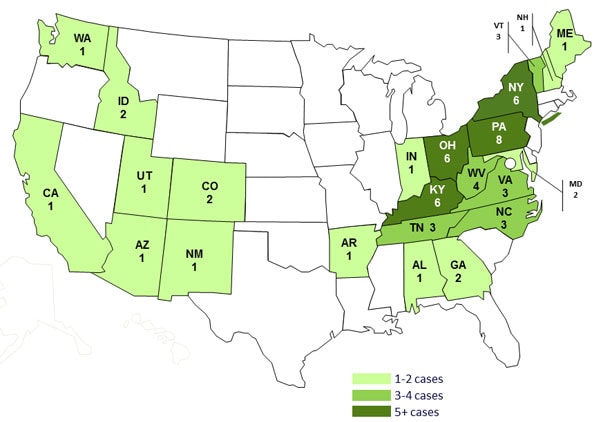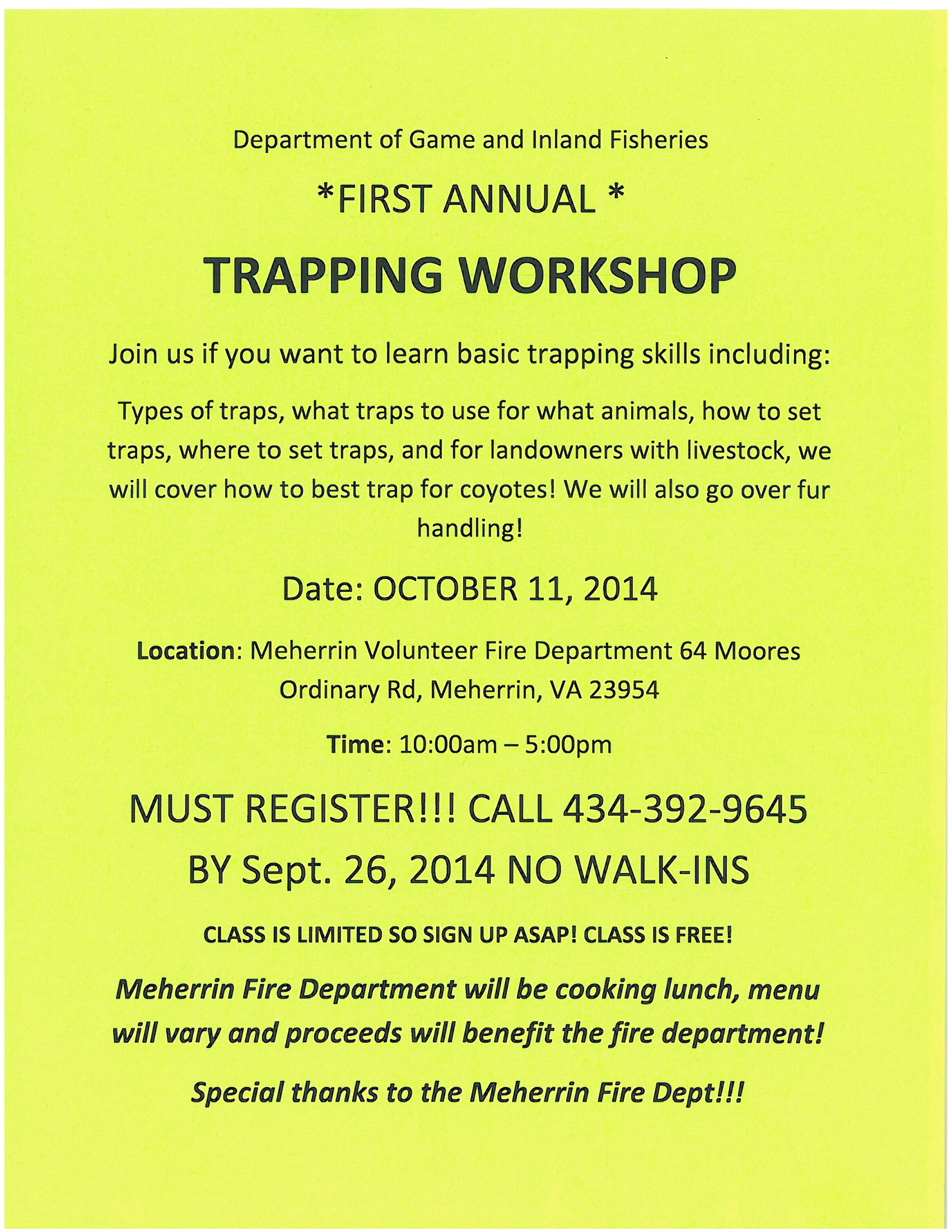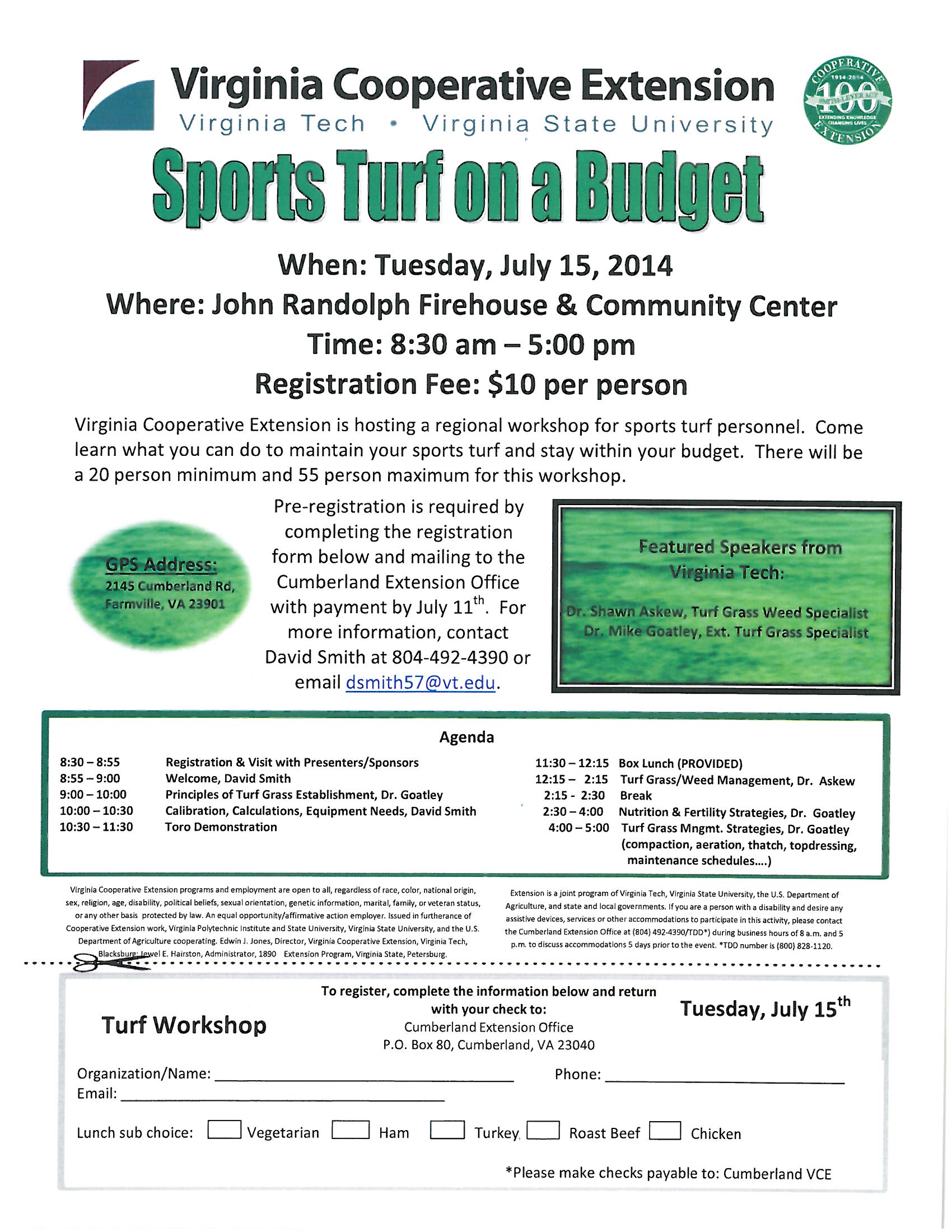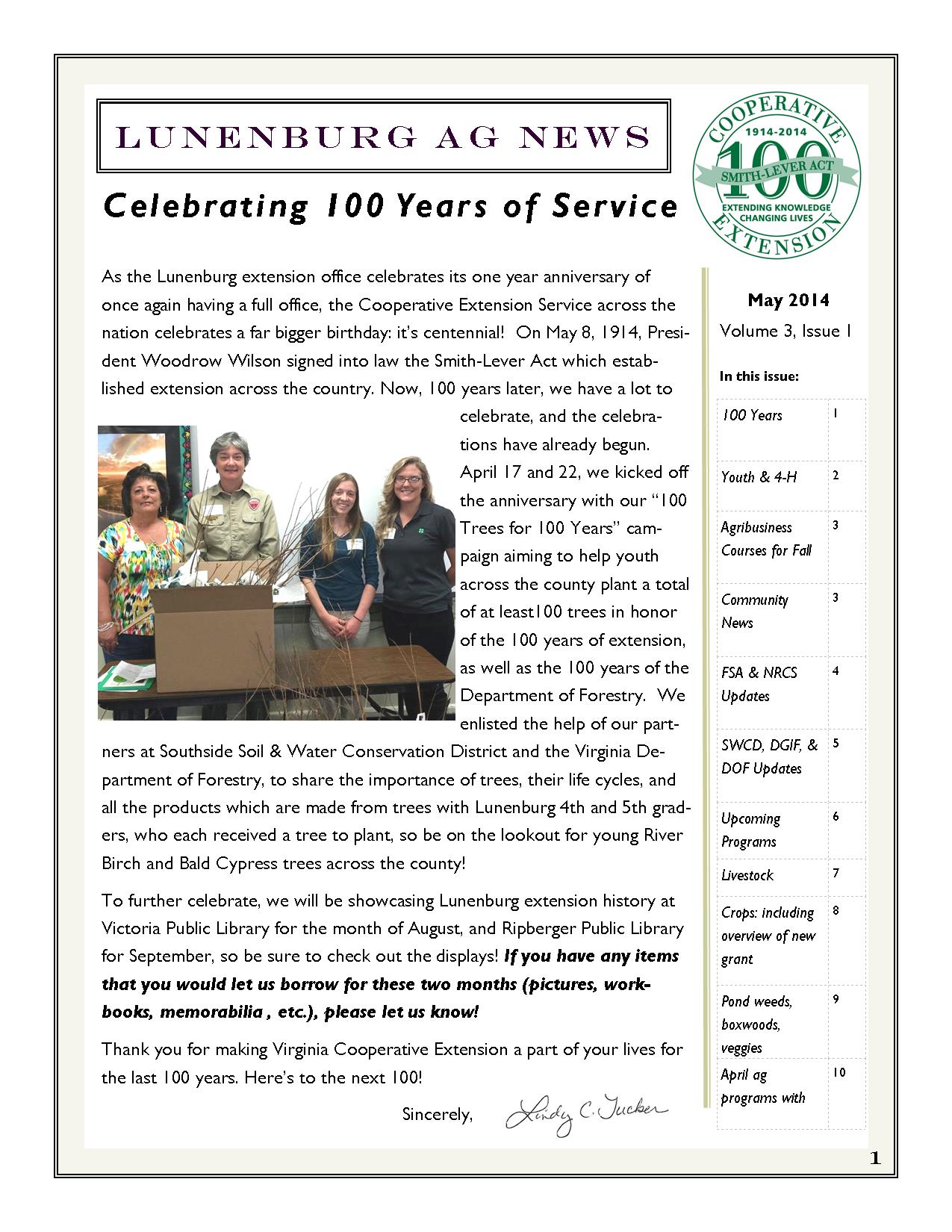Author Archives: tucker07
Biosolids Information
BIOSOLIDS INFORMATION:
 With the recent interest in land application of biosolids in Lunenburg County, I wanted to pass along the information Virginia Cooperative Extension has available regarding the use of biosolids on agricultural land regarding the practice and its safety. The publications are from 2009, but still give a great overview of the major questions and concerns.
With the recent interest in land application of biosolids in Lunenburg County, I wanted to pass along the information Virginia Cooperative Extension has available regarding the use of biosolids on agricultural land regarding the practice and its safety. The publications are from 2009, but still give a great overview of the major questions and concerns.
Virginia Cooperative Extension Publications
1. Production and Characteristics of Biosolids
2. Regulations
3. Managing Biosolids for Ag Use
4. Risks and Concerns
Other Resources
The EPA website for biosolids information: http://water.epa.gov/polwaste/wastewater/treatment/biosolids/index.cfm
The DEQ website for biosolids information: http://www.deq.virginia.gov/Programs/Water/LandApplicationBeneficialReuse/LandApplication.aspx
Also, the Virginia Biosolids Council, though obviously in favor of biosolids, does provide some good resources and links to other resources for the general public through their website: http://www.virginiabiosolids.com/
Private Pesticide Applicator Certification Review & Test
Private Pesticide Applicator Review & Test
THIS Wednesday, July 2, at 6:30pm at the Ripberger Public Library in Kenbridge, Virginia Cooperative Extension will be holding a review session for the private pesticide applicators test. You must be certified as a Private Applicator if you use restricted use pesticides to produce an agricultural commodity on land you own, on land you lease, or in exchange for services with another producer. Following the review, the private applicators test will be offered on paper for who feel adequately prepared for the test. The private pesticide applicators test can be taken at any time by appointment at the extension office.
To let me know you are coming and to ask questions, please contact Lindy Tucker (434) 321-2009.
Upcoming Programs
Aquaculture Workshop for Friday – POSTPONED
Reported Salmonella Cases Linked to Backyard Poultry
The purpose of this post is not to scare you away from raising your own chickens or away from buying eggs from someone who does, but simply to make you aware of the food safety issues related to food production in general. Commercial agriculture practices do a great job of following strict food safety guidelines, but as more and more people are interested in raising their own food, there is a bit of a disconnect with the food safety concerns of raising your own.
The following is a post from the Center for Disease Control (CDC) regarding recent Salmonella cases in humans being linked to backyard poultry. The full announcement and more information can be found at: http://www.cdc.gov/salmonella/live-poultry-05-14/

- As of May 7, 2014, a total of 60 persons infected with the outbreak strains of Salmonella Infantis orSalmonella Newport have been reported from 23 states.
- 31% of ill persons have been hospitalized, and no deaths have been reported.
- Epidemiologic and traceback findings have linked this outbreak of human Salmonella Infantis andSalmonella Newport infections to contact with chicks, ducklings, and other live baby poultry from Mt. Healthy Hatcheries in Ohio.This is the same mail-order hatchery that has been associated with multiple outbreaks of Salmonellainfections linked to live poultry in past years, including in 2012 and 2013.
- 82% of ill people reported contact with live poultry in the week before their illness began.
- Findings of multiple traceback investigations of live baby poultry from homes of ill persons have identified Mt. Healthy Hatcheries in Ohio as the source of chicks and ducklings.
- Mail-order hatcheries, agricultural feed stores, and others that sell or display chicks, ducklings, and other live poultry should provide health-related information to owners and potential purchasers of these birds prior to the point of purchase. This should include information about the risk of acquiring a Salmonella infection from contact with live poultry.
- Read the advice to mail-order hatcheries and feed stores and others that sell or display live poultry.
- Always wash your hands thoroughly with soap and water right after touching live poultry or anything in the area where they live and roam.
- Do not let live poultry inside the house.
- Additional recommendations are available.
- These recommendations are important and apply to all live poultry, regardless of the age of the birds or where they were purchased.
This excerpt and the map, were taken from the Center for Disease Control website, posted May 8, 2014.
Interested in Solar Energy?
Virginia Tech & Virginia Cooperative Extension will be hosting two Saturday workshops on solar energy conversion technologies, one on solar electric/photovoltaics (PV) and the other on solar hot water.
These sessions are sponsored by the Virginia Department of Mines, Minerals, and Energy.
· Solar Water Heating: Introductory Workshop
Saturday, May 3, 2014
Harrisonburg, VA
More info available at: LINK
· Solar Photovoltaics: Introductory Workshop
Saturday, May 17, 2014
Front Royal, VA
More info available at: LINK
INTERESTED BUT CANNOT MAKE THE MEETINGS?
Here are two Youtube videos you may find helpful!
Strawberry Growers Variety Showcase in VA Beach
Asparagus
Got a question this week regarding some “bugs” feeding on asparagus. They turned out to be asparagus beetles which are often a problem in asparagus, but I thought I’d take this opportunity to share some resources regarding asparagus and its pests. Hope you find it helpful!
Getting Started in Asparagus Productions
Asparagus Beetles on Asparagus
Lunenburg Ag News May Newsletter Now Available
Looking for an overview of all that is going on??
Check out the May 2014 newsletter!




